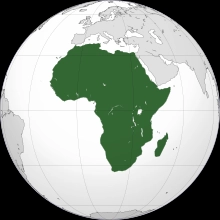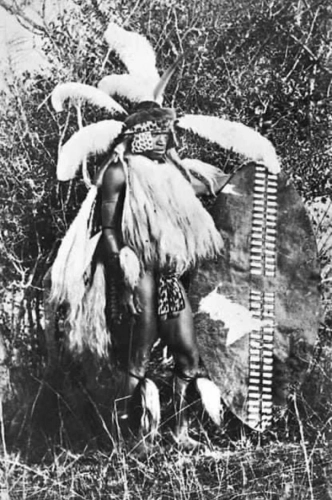ReligionNews And PoliticsLifetipsRelationshipsNewsBusiness And MoneyHistoryComedyMotivationalsRelationship And MarriageCelebrityStoriesHealth And LifestylePoliticsMotivationEducationLawFamilySports And FitnessHealthCommunications And EntertainmentIT And Computer SciencePrinciplesAnimalsLifestyleScience And TechnologyNatureOthersKitchenMenPoemsGeneralAgricultureMarriageQuestions And AnswersQuestions AnsweredSocial SciencesSecuritySportsSpiritualityArtsVehicles And MobilityGive HelpHandiworksChildrenScience
Gale2626
Business Person : I'm A Town Planner By Qualification, Self Employed And A Blog Writer, Love Esthetics, Reading And Sports. And I'm Also Single In Case You Crush On Me, Just Say It...
Wants to meet A Spouse : Open To Meeting New Friends And Someone Special To Be With
Articles
396
Followers
60
Connect with me
profile/8055FB_IMG_15961823052589134.jpg
Gale2626

THE HEART OF AFRICA IS BLEEDING!
~1.8 mins read
THE HEART OF AFRICA IS BLEEDING.
bleeding because of the shame that we have brought to it.
we are not making it proud of us.
Africa is worried of what kind of shame that this current generation will bring.
imagine,
The world's first university Al-qarawiynn was founded in Morocco by a lady called fatima bint Muhammad Al-firhiya in 895 CE and whites became more Educated than us.
the world's first computer was developed in Egypt and still the wh!tes have advanced in technology more than us.
money is a paper made out of trees (Africa is full of trees) and we are instead required to pay our resources, values and effort for this paper tree.
the diamond that's mined in South Africa, Botswana and Liberia can not be sold freely until the price has to be fixed in Belg!um.
the Coco that is found in Togo and Ghana is use as chocolate in Sw!tzerland and Belgium who don't even have a single bush of Coco.
Coltan is mined in democratic republic of Congo and there is no single country in Africa that has manufactured a single mobile phone.
the normal tea of Ethiopia, Uganda and Kenya has to be taken to the Un!ted k!ngdom and they in return named it as Brit!sh tea.
All these are happening because we have allowed our mines to be captured.
captured by the spirit of inability.
it hurts me most when I hear fellow black men surrendering their problems for whites men to solve.
why have we allowed ourselves to feel so inferior?
why do we think that we can't do as they are doing?
why?.........why?..
Why?................
Robert Mugabe once said that we have only one race in the world and that's human race.
But the wh! tes have forgotten that.
It's our fundamental duty to remind them that we were once created in the image of the Almighty God.
the God we worship seems to have abandoned us but it's not true.
it's not true because God is righteous.
God has created humans in his likeness and image.
Wen-Atong
#Harshaviiniasho-Writings#
profile/8055FB_IMG_15961823052589134.jpg
Gale2626

How The Zulus Defeated The British Empire.
~2.4 mins read
In January 1879, the British army in South Africa invaded the independent and previously friendly Zulu kingdom, which had been founded by the formidable Nguni warrior Shaka Zulu in 1818. Shaka had been the first proper king in South Africa, in that he managed to unite almost 800 Eastern Nguni–Bantu clans under his rule, displacing the rest. He was also the first to establish a proper army, which he divided into regiments called impis armed with assegais and iklwas – the former a traditional long-poled spear to use from a distance, the latter a remodelled short-poled version which was lethal in hand-to-hand combat.
Leading the British troops was Lord Chelmsford, a Knight Commander of the Order of the Bath who had already fought in Crimea, India, and South Africa, winning skirmishes with Xhosa chieftains which no doubt influenced his low opinion of the Zulus. He commanded 4,700 highly trained soldiers equipped with the latest Martini-Henry rifles, assisted by armed colonial volunteers and many field guns of the Royal Artillery. He attacked the kingdom on three fronts, expecting an easy victory and national fame.
Facing him on the vast, baking-hot plain at Isandlwana was a Zulu army of 350,000 warriors wielding deadly spears and an assortment of ancient muzzle-loading firearms, divided into 34 regiments of which 18 were made of married men, and 16 of unmarried ones. However, since 7 of the married regiments were made of men over 60 years old, there were only 27 Zulu regiments fit to take the field, amounting to some 44,000 warriors.
News of the attacking force reached the Zulu court while it was getting ready to host the annual First Fruit Festival, attended by all the regiments, smaller chiefs, and the best isangomas of the land –who immediately started manufacturing protective amulets and invigorating potions. What was supposed to be a harvest celebration turned into a three-day pre-war ceremony, at the end of which all warriors were sprinkled with protective medicines and sent to the border.
When the Zulus first appeared in the distance Lord Chelmsford divided his force to meet them, leaving over 1,500 men in the main camp beneath the Isandlwana hill. It was this reserve force that the Zulus attacked, leaving Chelmsford’s main regiment stranded miles away and unable to help.
The Zulu plan was simple, but efficient, developed over hundreds of years while hunting large herds of game. It was called the “horns of the bull”, with the horns made of fast-moving younger regiments whose primary job was to encircle the enemy, leaving the killing to the more seasoned warriors who would bear the brunt of a frontal attack.
The tactic was most successful if the two horns completed the encirclement of the enemy before the main body of warriors had been seen, and in this battle they not only encircled the British position but also the hill of Isandlwana itself. When the circle was closed, they advanced at a steady jogging speed, then broke into a run.
The battle raged for less than an hour, at the end of which all but 100 British men had been killed – and that’s because they ran away before the Zulus attacked. When Lord Chelmsford entered the shattered camp strewn with corpses he famously said: “But I left a strong force here! How was this possible?”
It was the worst defeat ever suffered by British troops at the hands of indigenous people equipped with vastly inferior military technology. It was also the greatest victory the Zulus were ever going to achieve.
Photo of a Zulu warrior taken in 1860.
Advertisement

Link socials
Matches
Loading...
